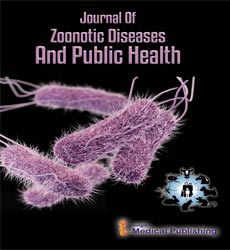Community Medicine: A Brief History of Public Health Policy Implementations
Monica Das*
Department of Public Health, University of Otago, Wellington, New Zealand
- *Corresponding Author:
- Monica Das
Department of Public Health,
University of Otago,
Wellington,
New Zealand,
E-mail: dasmoni7@gmail.com
Received Date: September 17, 2021;Accepted Date: October 01, 2021;Published Date: October 08, 2021
Citation: Das M (2021) Community Medicine: A Brief History of Public Health Policy Implementations. J Zoonotic Dis Public Health Vol.5 No.S1: 003.
Description
The history of public health is derived from many historical ideas, trial and error, and the event of basic sciences, technology, and epidemiology. within the era , James Lind’s clinical test of varied dietary treatments of British sailors with scurvy in 1756 and Edward Jenner’s 1796 discovery that cowpox vaccination prevents smallpox have modern-day applications because the science and practices of nutrition and immunization are crucial influences on health among the developing and developed countries.
History provides a perspective to develop an understanding of health problems of communities and the way to deal with them. We visualize through the eyes of the past how with them. We visualize through the eyes of the past how societies must face the realities of disease and death, and develop concepts and methods to manage them. These strategies evolved from knowledge domain and trial and error, but are related to cultural and societal conditions, beliefs and practices that are important in determinations, beliefs and practices that are important in determining health status and curative and preventive interventions to enhance health.
The history of public health may be a story of the look for effective means of securing health and preventing disease stimulated thought and innovation in disease prevention on a practical basis, often before the causation was established scientifically. The prevention of disease in populations revolves around defining diseases, measuring their occurrence, and seeking effective interventions. Public health evolved through trial and error and with expanding scientific medical knowledge, sometimes controversial, often stimulated by war and natural disasters. The necessity for organized health protection grew as a part of the event of community life, and especially, urbanization and social reforms. Religious and social beliefs influenced approaches to explaining and attempting to regulate disease by sanitation, city planning, and provision of medical aid. Religious and social systems have also viewed scientific investigations and therefore the spread of data as threatening, leading to inhibition of developments publicly health, with modern samples of opposition to contraception, immunization, and food fortification.
Scientific controversies, like the contagionist and anticontagionist disputations during the nineteenth century and opposition to social reform movements, were ferocious and resulted in long delays in adoption of the available knowledge domain. Such debates continued into the 20th and still continue into the twenty first century with a melding of methodologies proven to be interactive incorporating the science, health promotion, and translation sciences bringing the simplest available evidence of science and practice together for greater effectiveness in policy development for individual and population health practices.
Modern society in high, medium and low income countries still faces the traditional scourges of communicable diseases but also the fashionable pandemics of disorder, cancers, mental disease and trauma. The emergence of acquired immunodeficiency syndrome, severe acute respiratory syndrome, avian influenza, and drug-resistant microorganisms forces us to seek new ways of preventing their potentially serious consequences to society.
Conclusion
Threats to health during a world facing severe climate and ecological change pose harsh and potentially devastating consequences for society. The evolution of public health may be a continuing process; pathogens change, as do the environment and therefore the host.
Open Access Journals
- Aquaculture & Veterinary Science
- Chemistry & Chemical Sciences
- Clinical Sciences
- Engineering
- General Science
- Genetics & Molecular Biology
- Health Care & Nursing
- Immunology & Microbiology
- Materials Science
- Mathematics & Physics
- Medical Sciences
- Neurology & Psychiatry
- Oncology & Cancer Science
- Pharmaceutical Sciences
